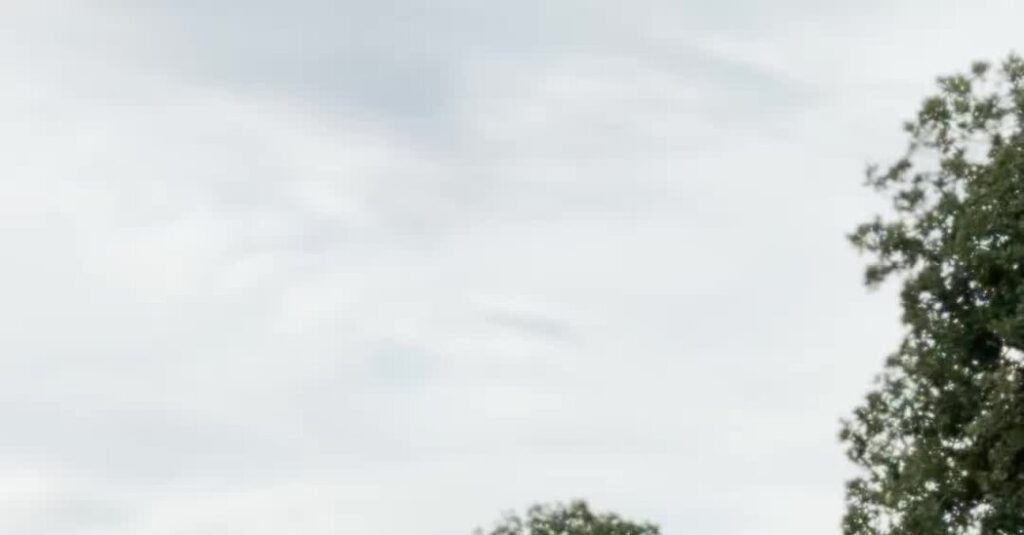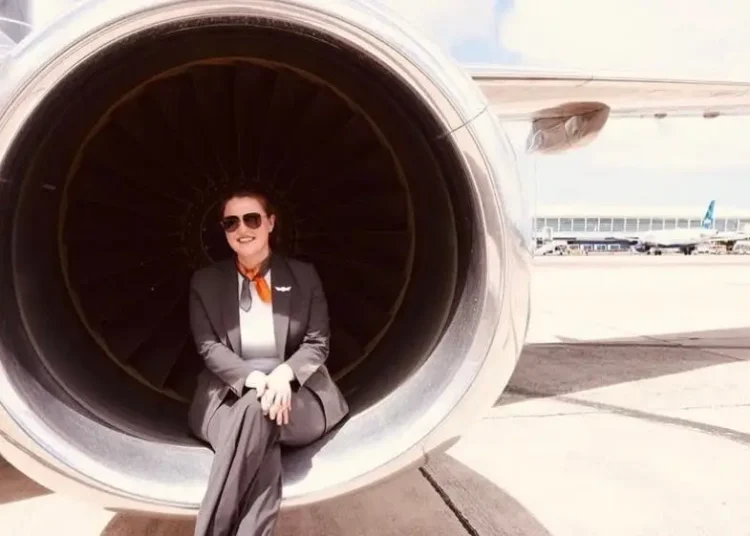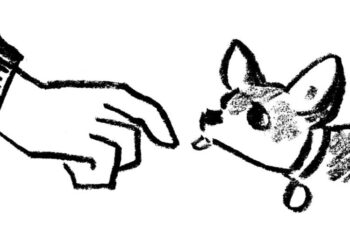As a fourth-generation cheesemaker from the Puglia region in Italy’s boot, Angelantonio Tafuno sounds in many ways like just another millennial trying to slow down in a frenetic world.
On a recent fall afternoon, Mr. Tafuno, 32, preached a more languid lifestyle for farmers and cheesemakers who “are running a little too much.” His goal, he said, was to churn out fewer bulbs of the handmade burrata and mozzarella that his family has been making for decades, while developing specialty aged cheeses that he can produce for just a few months of the year. Behind him, a herd of Podolica cows, a breed of cattle that produces less milk than typical dairy cows, pounded toward a wooded grove to graze for the afternoon.
But for Mr. Tafuno, who invested in 30 head of the Podolica two years ago, the effort to develop new artisanal formulations represents more than a desire to create a gentler farm-to-table life. Doing more with less has become necessary as climate change endangers his family’s business. Extreme temperatures in Italy linked to global warming have not only contributed to dire droughts and catastrophic fires, they have also caused cows to produce less milk.
In Puglia — which produces a majority of Italy’s famed creamy-centered burrata — cheesemakers are trying to adapt to a diminishing supply of their key raw ingredient. For Mr. Tafuno, developing cheese varieties that require less milk “is a way to face what is happening now with climate change.”
He knows what is happening because he can feel it. He spends several mornings a week with his hands sunk deep in metal tubs of curd and whey, stirring with a large beechwood paddle to transform the consistency to taffylike lumps that he stretches and folds and ties into knots. Working with his hands, he said, he can detect whether the milk has come from stressed cows because it is thinner and takes longer to curdle. These days, he said, he feels declines in the milk’s quality more and more often.
The science backs him up. Depending on their sensitivity to heat and humidity and how high temperatures rise, cows’ milk production can drop anywhere from 3 percent to as much as 20 percent, said Umberto Bernabucci, a professor at the University of Tuscia who studies cow physiology. Other studies show that heat and humidity can cut milk yields by as much as 30 percent. Heat also degrades protein and fat levels in milk, which directly affect the quality of cheese.
According to an analysis of government data by CLAL, a dairy industry research center based in Modena, in northern Italy, milk production from cows throughout Italy has been declining because of the heat in the summer months. From 2022 to 2024, milk production dropped an average of 17.2 percent between March and September, more than an average drop of 15.5 percent during those same months in the previous three years.
Dairy farmers operate on thin margins, so it does not take a drastic decrease to create what Eyal Frank, an environmental economist at the University of Chicago, calls “a milk apocalypse.”
At a time when restaurants in Italy teem with insatiable tourists and when exports of Italian favorites like burrata and ricotta have skyrocketed, a decline in Italy’s milk supply means some cheese producers are unable to fulfill all their orders. Although cheesemakers can import some milk, they still largely rely on local farmers.
Cows are often blamed for contributing to climate change because they belch methane, but in this case they are victims of it. In Italy, the declining milk supply adds to a litany of problems for farmers, like rising energy and feed bills, according to Coldiretti, Italy’s largest agricultural union. A union report warns that because of these combined threats, close to one in 10 dairy farms across Italy are at risk of closing.
Mr. Tafuno refers to the animals owned by his milk suppliers as “my cows.” On Instagram, along with luscious photos of cheese, he posts idyllic pictures of himself posing with livestock. One caption describes how Mr. Tafuno’s heart “explodes for the love of his earth and the animals he nurtures on sustainable farms.” These days, because of the tighter milk supplies, he sometimes cannot meet cheese orders from restaurants and grocery stores in Rome, Milan, Lake Como and Puglia.
“The clientele want more and more,” said Donato Calvi, who runs a restaurant with his two sisters in Altamura, the Apulian town where Mr. Tafuno makes his cheese. Mr. Calvi, 39, purchases a variety of cheeses from Mr. Tafuno, but he occasionally has to disappoint customers when an item sells out.
Customers “do not understand that when working with nature, everything has a cycle that cannot be standardized,” Mr. Calvi said, on a night when pumpkin bruschetta topped with Mr. Tafuno’s scamorza —- a cheese variety in the same family as mozzarella — was on the menu.
To combat the effects of the heat, some farmers have introduced cooling measures such as water misters and fans. Antonella Nocco, 44, a veterinarian and dairy owner who sells milk to Mr. Tafuno, says she turns on fans in the barn where she houses 330 cows even when temperatures are as low as 68 degrees Fahrenheit. Studies show that cows can start to feel heat stress at such levels.
The cooling measures are prohibitively expensive for some local farmers. Anna Loiudice, 48, runs a family farm that also sells milk to Mr. Tafuno. She said heat-induced declines in milk during the summer had cut her annual profit margins by an average of 20 percent. As flies swarmed around piles of hay stacked outside pens where Jersey cows lolled in mud on a recent visit, Ms. Loiudice said she now had little choice but to invest in misters and fans.
“Slowly, slowly we will have to put those things up,” she said. “Otherwise it will be too difficult” to keep the milk flowing.
The reality, some experts said, is that such antidotes are limited in how much they can accomplish. “You can only mitigate the negative effect of the heat by up to 50 percent max,” said Claire Palandri, the lead author of a study that documents how cows are affected by humidity and heat.
For farmers and cheesemakers in Puglia, hardship is nothing new.
Even before global warming drove summer temperatures to extremes, Apulians battled conditions of scarcity as scorching summer temperatures led to regular drought. And the rocky terrain does not offer many wide-open areas where animals can graze.
“Historically it is said that the milk in Puglia is made from stones,” said Francesco Mennea, the director of a consortium of 15 burrata makers headquartered in Andria, a midsize city in Puglia.
For now, cheesemakers who face a dwindling supply of milk are trying to conserve it.
At the Sanguedolce Dairy in Andria, Matteo Sanguedolce, 31, one of eight great-grandchildren of the founder, gave The New York Times a tour of the factory floor where hundreds of balls of burrata and mozzarella floated in large steel vats of water. Showcasing the control panels on four cisterns where nearly 53,000 gallons of milk a day are converted into curd for cheese, he said that monitoring temperatures precisely ensured little milk went to waste. “Just 1 percent is very important for us,” said Mr. Sanguedolce.
Some small farmers and cheesemakers say they instead prefer old-fashioned techniques to cope with the modern challenge of climate change.
Mariantonietta Scalera, 36, along with her father, Vito, tends to a mix of 20 Swiss Brown, Holstein and hybrid cows and close to 160 goats and sheep on their farm on the outskirts of Altamura. They make mozzarella, burrata, scamorza, ricotta and provolone, among other cheeses, that the family sells from a darkened anteroom in their house.
To protect the animals from heat stress, Ms. Scalera said, she tries to limit the number of goats and sheep that get pregnant — which sets off lactation — in early summer. By keeping billy goats and rams out of the pens of female flocks at key times, she prevents summer pregnancies and restricts peak milking periods to cooler months. She is considering similar measures for the family’s cows.
Mr. Scalera,who cited a passage from Homer’s Odyssey in which a Cyclops makes cheese in a cave, said he followed ancient practices and accepted a smaller output.
“It’s like two worlds which are about to collide,” he said, as barnyard kittens and dogs scampered near his feet. On the one side, he said, is “industrial farming — synthetic, chemicals, emissions, maximum productivity.” He contrasted that with the natural approach. “Small, with as little impact as possible,” he said. “Just making what you have to make and not pushing for more.”
Josephine de La Bruyère contributed reporting from Altamura and Rome.
Motoko Rich is the Times bureau chief in Rome, where she covers Italy, the Vatican and Greece.
The post Climate Change Is Stressing Italy’s Cows, and Coming for Your Burrata appeared first on New York Times.




